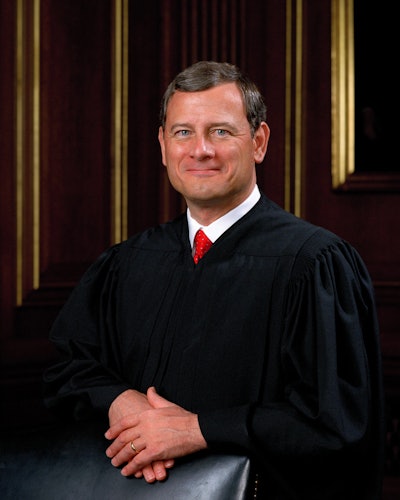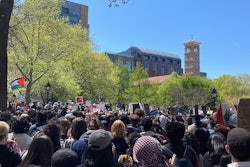The U.S. Supreme Court dashed the hopes of 40 million student borrowers Friday, striking down President Joe Biden’s student loan forgiveness program. The plan would have offered $10,000 of relief to borrowers making under $125,000 and $20,000 to those who had received Pell grants, for an estimated $430 billion of forgiveness. The court ruled 6-3 along partisan lines that a program with such a large impact was beyond the power of the Department of Education to enact without the approval of Congress.
In February’s oral arguments, the Biden administration had argued that the forgiveness program was permissible under the Higher Education Relief Opportunities for Students (HEROES) Act of 2003, which, in the event of a national emergency such as the COVID-19 pandemic, gives the Secretary of Education the power to “waive or modify” provisions of the Higher Education Act of 1965, which governs federal student aid.
 Chief Justice of the Supreme Court John Roberts
Chief Justice of the Supreme Court John Roberts
“The Secretary’s plan has ‘modified’ the cited provisions only in the same sense that ‘the French Revolution ‘modified’ the status of the French nobility’—it has abolished them and supplanted them with a new regime entirely,” Roberts wrote.
The plan, ruled Roberts, could not be justified as a “waiver,” because it adds new and different provisions to the law, such as the amounts to be forgiven and the eligibility requirements. The administration’s actions, Roberts argued, are less of a waiver and more of a wholesale rewriting of the law.
“What the Secretary has actually done is draft a new section of the Education Act from scratch by ‘waiving’ provisions root and branch and then filling the empty space with radically new text,” the chief justice wrote.
Roberts concluded that Congress would be the appropriate body to enact a mass debt cancellation and that it would not have intended for such a power to fall to the Secretary of Education, an affirmation of the so-called “major questions doctrine,” in which the court has required “clear Congressional authorization” for action on important issues of economic or political significance.




















